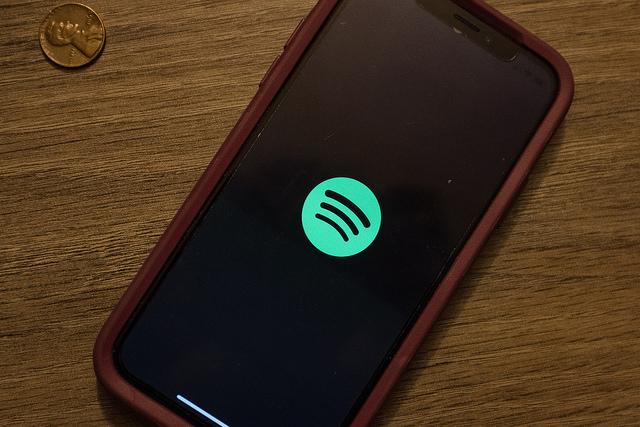Let’s talk about Spotify Premium. Yes, some people might think it’s the same as regular, non-premium, plebeian Spotify, but there are some key differences. It’s important to understand why exactly it would ever be worth paying over $10 a month — $5 with a student membership — just to listen to music.
First, it’s 2018. Nobody carries MP3 players around anymore, and music listeners have transitioned to enjoying their tunes on smart phones. It makes more sense to store your music in an app, particularly one which streams and downloads your music of choice. It’s far more convenient having the option to instantaneously look up any specific song you may want to hear, rather than attempting to download an entire album or search hours for a song from 2009 on the internet.
Although Spotify Premium is not inexpensive, you have to evaluate the other options that are far costlier. CDs go for about $10 on average, and purchasing a whole album on iTunes costs about the same. Additionally, many computers nowadays don’t even come with disc drives built in, so you’d have to buy a disc drive or a CD player just to listen to the music you’ve purchased. Individual songs usually cost between 99 cents and $1.29, so it’s actually more economically sound to pay a subscription fee each month than to buy individual songs and albums.
Yet another downside of the free version of Spotify is, when used on a smartphone, albums are automatically shuffled. I am a firm believer in listening to albums in order, particularly when the artist lists the songs in a specific sequence. Many albums which received critical acclaim in the last few years feature introductions, interludes and closing tracks. Take Kendrick Lamar’s “DAMN,” for example: In the track-by-track breakdown from Rolling Stone magazine, Lamar’s choice for an introduction and closing are explained in greater detail. Likewise, the tracks in between are laid out for a calculated reason. Even the collector’s edition, on which the tracks are ordered in reverse, maintains that structure. Likewise, another Lamar album, “good kid, m.A.A.d city,” is subtitled “A Short Film by Kendrick Lamar,” indicating that there is a story arc laid out in the order of the tracks.
This isn’t to say that everyone is listening exclusively to whole albums all the time. Spotify is an excellent place to make and store playlists, which can be done on the free version, but with the free version, you can only skip six songs per hour of music listening. The last thing anyone wants is a song they can’t skip killing their vibe while they’re at a party, working out or studying. Another free Spotify buzzkill is an ad interrupting your listening session. The Spotify website doesn’t appear to say how often ads play between songs, but some people claim to hear ads every two or three songs.
For an ad-free listening experience, or for anyone who likes listening to albums in order, or for people who skip around a lot before they get into the rhythm of their music or anyone who lands somewhere in between, Spotify Premium makes sense. This is an investment that makes sense; bite the bullet and pay the fee, if you can.
Sophie Allen is a Collegian columnist and can be reached at [email protected]




















Jacob • Apr 18, 2018 at 1:05 pm
Yes, Premium is definitely worth it. I’ve had it for a year and a half now, and I love the freedom to play any song I want. I also learned that you could see your top tracks, like your own personal billboard charts. It’s really cool. Spotify Premium is better than Apple Music in my opinion.
Yun • Apr 18, 2018 at 11:53 am
So with MP3 players being irrelevant, “nobody [uses] them anymore” why then does the article go on to compare prices to CDs? “It’s 2018” so how is comparing Compact Disc prices to a digital streaming service any more relevant?
Mak • Apr 18, 2018 at 5:17 pm
I like how you decided to skip what was said rigt after that mentioning how much it would be to buy the song on iTunes.
John aimo • Apr 18, 2018 at 11:05 am
Buying an app prescription is not an ‘investment’, do writers at the collegian have even a basic understanding of English?
Second did Spotify pay the collegian to write this article? It gushes over it and doesn’t offer information on Spotify’s competitors like deezer.
If I ever go into business, I am going to have the collegian and media promote it for me. They are eager to be a lapdog.